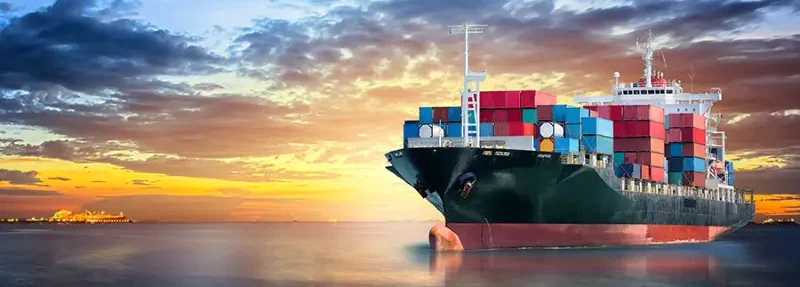The continuing promise of the China market | Exporter Magazine
David Mahon is a New Zealander and a corporate advisor who has lived in China since the mid-1980s, watching the massive changes and helping companies to predict which way things will go. He is also founder of Mahon China. Exporter spoke to him recently about the problems and opportunities New Zealand companies face in this market.
What is the best stance for New Zealand long term in terms of dealing with the China opportunity?
“The New Zealand economy is predicated on these God-given resources and we don’t add value to them, we never have since refrigeration in the late 19th century. We used to ship frozen stuff to England, then when the Brits realized that we dominated the meat market they came and bought up the processing in New Zealand so they could own all the value themselves. It’s happening now with the Chinese investment. So we don’t change but we have to. We adapted to the British economy around the time of the turn of the century before last and we became the farm for Mother England, which we remained until the early 1960s when we started to diversify because we had realized that we were far too dependent on selling to Britain. But now China is becoming such an important part of our economy, what are we going to do? Are we going to adapt again? And if so, how will we adapt? And where do we diversify, because we can’t shape the entire New Zealand economy to fit the Chinese economy. Some sectors will need to do this to some extent, but where is our diversification? And many of our markets in Asia are subsets of China anyway. So there are a lot of factors for a very small economy with a pretty narrow economic base even compared to Australia.
What advantages does New Zealand have in this market?
There are a few cultural things. New Zealanders are great at being nice to Chinese and getting on well with them, but we don’t know how to build long-term businesses. We are traders, and that shallowness doesn’t serve us. So green, clean and friendly. But there are other clean green places. Australia could easily make the same claims, and if you look at food safety standards in Europe, salmon from Scotland or milk products from Ireland, they can make a very similar claim. So it’s okay, but you can’t use that as your only point of identity. What we don’t do globally is grow brands and that’s what needs to be done. Those who have really prevailed here are those who have managed to build their brands. Look at Nestle, a great example in sectors that we’re in – dairy products, water, the sort of things you want to have a good clean base for.
How are NZ companies handling the China market versus competitors?
Well, take a product like wine. New Zealand has a very strong wine profile globally, but France and Australia established themselves as the icons of high quality red wine, and frankly no one gets the French and Australian margins despite sometimes having a better product. New Zealand is selling white wines, which are our main sellers globally, almost ad hoc from small vineyards. I think there are around a hundred different companies selling to China at the moment and many of them probably don’t even know where their products are. We tend to do this; we make good quality things then we stick them in boxes at ports, and we send them off. They are sometimes purchased by distributors who come into our country and buy them and bring them back to their own, and we don’t go offshore, we don’t go into other cultures and establish ourselves. Medium-sized companies at least should know where their products are going, they should be vetting and governing their distributors.
How do you do that?
First of all, if you don’t have the management bandwidth and the money to set up a company yourself in China, you still need to be in very regular touch with your distributors in China. Take the time to go out into the market find out what consumers think and want, because we suffer from what I think other young countries suffer from – we have an over-confidence because we have been exporting from a relatively shallow history. We go out and say we have the best milk in the world, and people believe us because we believe it. It’s not always true, but that kind of huge confidence goes a long way until you come into a market like this where there has been a plethora of food safety crises. You’ve got some of the most skeptical and discerning consumers in the world. Something like 78% of all food in China is purchased by women. They go online; expectant mothers are in chat groups of scores of people talking about what products to buy for the child that’s coming. The research that goes into it is huge. So unless we’re aware of that, whatever we’re selling and no matter how good our goods may be, then others with similar products and often companies of larger scales will marginalise us in the market. But if we are present and we can stay close to what it is those consumers are perceiving our products as being and altering them so that they are even better perceived, then we can have long-term prospects.
How should small New Zealand companies deal with such a market then?
If you’re small company, you first have to question why you’re coming. Because you think there are great riches in China? This is one of the most ruthlessly competitive markets in the world and it’s not a fair market. This is not a country where the legal system and the regulatory authorities are independent of government; they are the tools of government. If you are hurting a local interest, some way or another you may find that you will be marginalized. So I think unless you’re working with other small companies in your sector, I think you probably shouldn’t come.
How would you advise New Zealand companies to deal with distributors?
You don’t want to sign up someone to be your exclusive distributor in China. You need to be able to go and look at other distributors and make some kind of comparison, so you’re choosing the best you can. The best may not be the biggest, it may be someone smaller that needs you, and as long as your distributor has a need for you, they are more likely to push your product in a reasonable manner. Otherwise if they have a laundry list of products and yours in just one of them, margins are better on the others, then you’re not going to get there.
The more often you’re there and present, trying to add value and participating in the marketing campaigns, the more you’ll get out of the relationship, but we tend to be a very passive country commercially. We think we’re all Edmund Hillary. But if you look at the breakdown of New Zealanders travelling, 600,000 go to Australia, which is like going to stay with a richer relation, a couple of hundred thousand go to London which is like going home to your grandmother, and the rest are scattered around. There are very few in Asia, very few in emerging markets or where English isn’t spoken. Yet the idea we have of ourselves is that we keep thrusting beyond our own shores. But it just isn’t true. Our whole trade with South America is under a billion dollars. So we’re not people who like to go into other cultures necessarily and live a different life.
How is China’s economy doing?
There is an industrial slowdown and there needs to be. There was overcapacity in the industrial sector and companies will be merged and absorbed, they will shut down. But this is a fundamentally healthy economy with strong consumer demand. The service sector is growing, perhaps not as well as the government is reporting, but the switch to services as a driver of GDP growth is genuine, but a bit slow. But this is the most restricted service economy in the OECD. So that means the Chinese government has to genuinely release growth in the Chinese economy though the service sector. Telecommunications is completely state-owned – even freight-forwarding, the chemical industry, and catering, oddly enough. Catering is hugely dominated by state interests. Then you have transport, airlines … without losing control they could inject a huge amount of growth into the economy. But in 2005 the Chinese economy was under three trillion USD, last year it was over 11 trillion. The growth rate in 2005 was 11.5%, and last year was nudging 7%. How could this be an economy that’s slowing?
Do you believe these numbers are real?
I do. We manage mostly stressed assets all over the country. There are major problems with the northeast. There a lot of people about to be unemployed up there, but they will move and be employed elsewhere. Overall there is a lack of labour rather than an oversupply. But I think that fundamentally consumption is strong, housing has come back in most cities. Yes, there’s been a crash in the stock market but the whole capital structure is less than 15 percent of all banking and finance put together. It is stupid they let it fall twice and they’ve got to think it through. The banks are solvent, you’ve still got huge reserves. But there is one thing they are doing wrong and that is non-commercial debt, which we’ve seen grow over the past three years. Money for the municipalities, cash for the provinces. One has to ask, is this (Chinese leader) Xi Jinping paying the price of some measure of obedience and unity? If they keep on doing it, four or five years from now, you will end up with banks that are running out of the means to provide credit to companies and you will have a credit crisis in China. But given the way the financial planners have handled things, and I think there are some very smart people in Beijing, if they’re allowed to run their consensus-driven think tanks and advise government in a wise manner, I think within 18 months this non-commercial credit splurge will change. But it alarms me more than anything else.
Prospects for growth over the next few years?
In the next two years, I think it will come down in absolute terms, perhaps even as close as 6%, possibly. I doubt it will go that low but it is possible. Even then, it will be a matter of looking at the scale of the economy in three years, and maybe then, 5% will be today’s 7%. And actually two percent either way in these kind of times doesn’t really count. The grassroots activity is so much more important than government policy. It’s when that begins to level out.
What’s the middle class now? I reckon it’s more than 120 million. and it’s growing fast. So that’s all in the mix as well. There are global issues too, the moribund global economy has hurt China.
How do you see the value of the RMB going?
I think it was too high, largely due to the weakness of the dollar in recent years. I think they have struggled not too gracefully to allow it to trade on a wider band. They sort of fumbled at the controls, now it’s a smoother process. I think we’ll be about 6.8 (to the USD) by the end of the year. And that’s about the right value given the current circumstances. I don’t think they’re looking for a low RMB in order to get some inordinate advantage internationally. It’s always a big issue for New Zealand, which does a lot of trade in USD. We’ve got our own issues generally of over-valuation. So we are selling products at a disadvantage because of our own currency’s over-valuation. Selling into China, that balance is very important.






